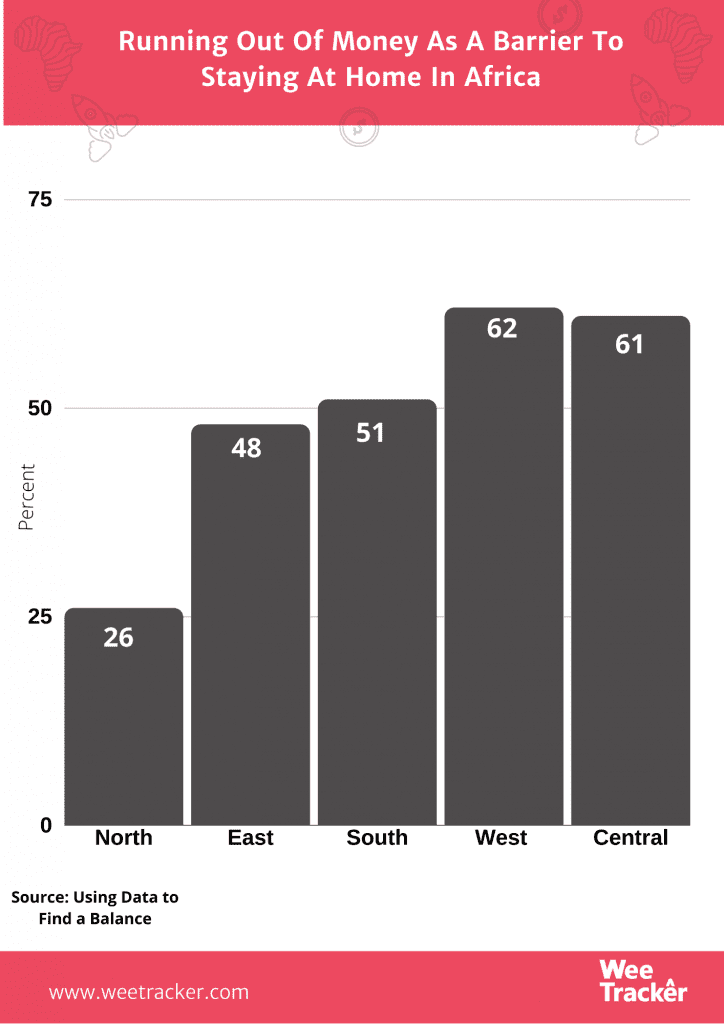Africa’s Monthly Losses Due To Lockdowns Is About The Size Of Tanzania’s GDP

It is the era of Covid-19, when lockdowns are the order of the African day and business disruption is the most pressing economic repercussion.
At this point, about 42 African countries have executed some kind of movement restriction and shuttered some parts of life to curb the spread of the virus.
Much For Little?
According to the Economic Commission for Africa (ECA), the lockdowns applied by countries in Africa would cost the continent about 2.5 percent of its annual Gross Domestic Product (GDP). That is equivalent to USD 65.7 Bn every month.
Titled Covid-19 Lockdown Exits Strategies for Africa, the report says the estimated loss is separate from and in addition to the wider external impact of the virus outbreak of lower commodity prices and investment flows.
For a measure that has proven vastly unfit for Africa’s informal economies, the lockdowns are costing much. Not to mention that due to the outbreak, Sub-Saharan Africa will be going into an economic recession for the first time in 25 years.
All parts of the continent, including the poorest countries with low coronavirus cases have adopted the western-style confinement. While some are easing the lockdowns, others are extending.
Zimbabwe, for instance, has been on lockdown since March 30 while having 44 Covid-19 cases. President Emmerson Mnangagwa has now extended it indefinitely, although reopening will be reviewed every two weeks.
It remains unclear whether the lockdown impositions in Africa have done much good or have only made the virus situation worse. But, on the loss side, things don’t look good.
New Expense
The adverse economic effects can be matched with the rate of business and market disruption the measures are causing. The USD 65.7 Bn lost every month to a lockdown is particularly disturbing compared the monetary implications of Africa’s other economic/business shortcomings.
Tanzania’s Gross Domestic Product (GDP) is currently estimated at USD 58 Bn. The economy is, however, outweighed by those stemming from curbing Covid-19 spread.
Should lockdowns continue for the rest part of the year, the amount of billions of dollars lost would be equivalent to the combined GDPs of Africa’s biggest economies.
For some countries, shutdowns could last for two-thirds of the year, an exit strategy which the report calls adaptive triggering. It entails nations easing restrictions once the rate of infections decline and re-impose them when cases rise above intensive-care capacity.
According to firms surveyed by the report, their business are operating at just 43 percent due to coronavirus-inspired restrictions. 70 percent of slum dwellers reported too that they were missing meals or eating less due to the outbreak.
Echoing Through Cracks
Africa’s total healthcare spend has remained within a narrow band of 5 to 6 percent of its GDP in 2000 to 2015. Nevertheless, it has almost doubled in per capita terms from USD 150 to USD 292.
Due to scarce public resourced and the unpredictability of donor aid, Africa, nonetheless, battles with high private out-of-pocket expenditure.
The result, asides from pushing many people into poverty, is that the continent’s current health spend remains significantly unable to meet the growing health financing needs. It has thus created a huge financing gap of USD 66 Bn per year, according to a GBC Health report.

Africa’s lockdowns have forestalled severe vulnerabilities. On average, survey respondents estimated they would run out of money in 12 days and food in 10 days. The lowest-income households expected to run out of food and money in less than a week.
Testing, contact tracing and restriction ease may be possible for nations with adequate public health systems, but that is hardly the case in the continent filled with developing countries.
Assuming health expenditure continues to increase with economic growth, nine additional countries will reach the spending target by 2020, bringing the total to 22 countries.
But with the loss brought on by lockdowns alone, Africa will need a radical system to mitigate the economic effects of Covid-19 and generate enough money to spend on healthcare, especially during such crisis.
Featured Image: Brock DuPont via Unsplash.